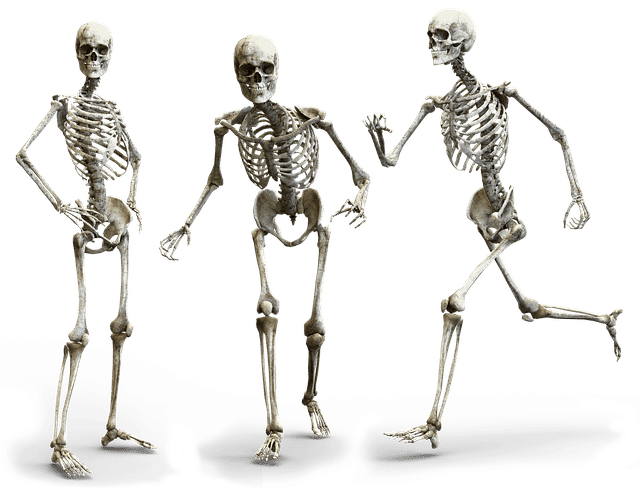Long story cut short, building healthy bones is imperative in today’s time. After all, strong bones are highly beneficial for the human body and help in giving you an active lifestyle. On the contrary, weaker bones are dangerous and might engage you in several health conditions. Bear in mind the minerals become a concrete part of our bodies during childhood. So once we cross our 30s, this is when the bones achieve maximum peak mass. However, if your bones haven't been infused with enough mass during this time, it will be hard for you to have an active life in the 40s and 50s. Simply put, you will eventually slant towards bone loss during the later stages of life.
This increases the chances of bone cancer and cracks forming in various joints of the body. Luckily, with the massive evolution of scientific research and in the light of current data, it is easy to say that you can build strong bones right now. In this feature, we will shed light on the natural ways to rest assured about strong bones:
Munch on Fresh Vegetables
Long story cut short; vegetables are highly beneficial for your bones. If you don’t know, vegetables are a good source of vitamin C, which is helpful for the formation of bone cells. According to recent studies, there is enough evidence that proves the benefits of vitamin C for protecting the bone cells from any kind of damage. Furthermore, vegetables are highly applauded because they will increase bone density. Bone density is the measurement of the calcium content and the rest of the minerals in your bones. If the bones are weaker, the chances of developing osteopenia or osteoporosis will be very high. However, a rich intake of green vegetables is highly beneficial for everyone.
Eat Protein-Rich Diets
Simply put, it is important for the body to get enough protein daily. Because around 50% of the human body muscles are made from protein, you need to eat enough to sustain your body. Researchers have concluded that eating less protein is dangerous for the body because it will have a strong impact on bone formation. However, there are equal concerns about high protein intake as it can cause the blood to become more acidic. However, studies have also concluded that this isn't a trait common amongst people who eat around 100 grams of protein daily.
Perform Strength Training and Workout
When was the last time you went to the gym or stretched your body to the fullest? If you don’t know, engaging in a certain kind of exercise will build strong bones easily. One of the easiest ways to rest assured about the strength of your bones is through weight-bearing exercises. Especially those who suffer from obesity should work out every day to get rid of the extra pressure on their body. There is a high chance of developing arthritis if they don’t get rid of the extra pounds. This is why many such people end up using the thumb support before working out.
Eat High Calcium Foods
There’s no running away from the fact that calcium is paramount for bone health. After all, it is the essential mineral found in the bones. Not to forget, the old bone cells keep on getting broken and replaced by the newer ones. Therefore, it is crucial for an individual to eat enough calcium daily to rest assured about bone health. If you don’t know, an RDI of around 1000 mg calcium per day is essential for most people out there. However, teens require around 1300 mg as they are in the growing phase of their life. However, you need to be careful with the amount of calcium intake because how much your body can absorb eventually varies from person to person. Interestingly, all of us eat meat daily that has around 500mg of calcium.
Avoid the Low-Calorie Diets
Even if you are trying to lose weight, dropping the calories by a significant amount is never a good idea. Apart from the metabolism slowing down, causing muscle loss is never healthy for bone health. There is enough evidence, which suggests that an intake of fewer than 1000 calories is not healthy for the body; in other words, it will lead to lower bone density and cause obesity in certain people. Another study of women consuming around 900 calories per day concluded that they lose enough bone muscle mass quickly. Regardless of whether or not they performed the strength training, their bones still got weaker than ever. To have strong bones and rest assured about strong muscle mass, it is essential to eat around 1200 calories per day.
Maintain a Stable Weight
Apart from eating a nutritious diet, you need to have a healthy weight. Especially if you want strong bones and an active lifestyle, you better keep away from unhealthy eating that causes obesity. For instance, if you’re underweight, the chances of osteopenia and osteoporosis will be at an all-time high. This is especially common amongst women who have delivered a baby and need to eat a healthy diet. On the contrary, studies suggest that being obese increases the chances of muscle mass loss. This is why many people have to run to doctor arthritis to get treated for such issues. You can easily calculate your body mass index and maintain a healthy weight without checking with a doctor.
So now that you have gone through this guide, you must have understood the importance of eating clean and healthy. With junk food being all over the place, it is hard for many people to have an active lifestyle. This is why now is the perfect time to work on your body, eat a nutritious diet and try to stay strong as much as you can. Have faith in yourself and start working out from now onwards. Because it is hard for all of us to find time for ourselves, a well-planned diet and a stellar workout can transform us easily.



